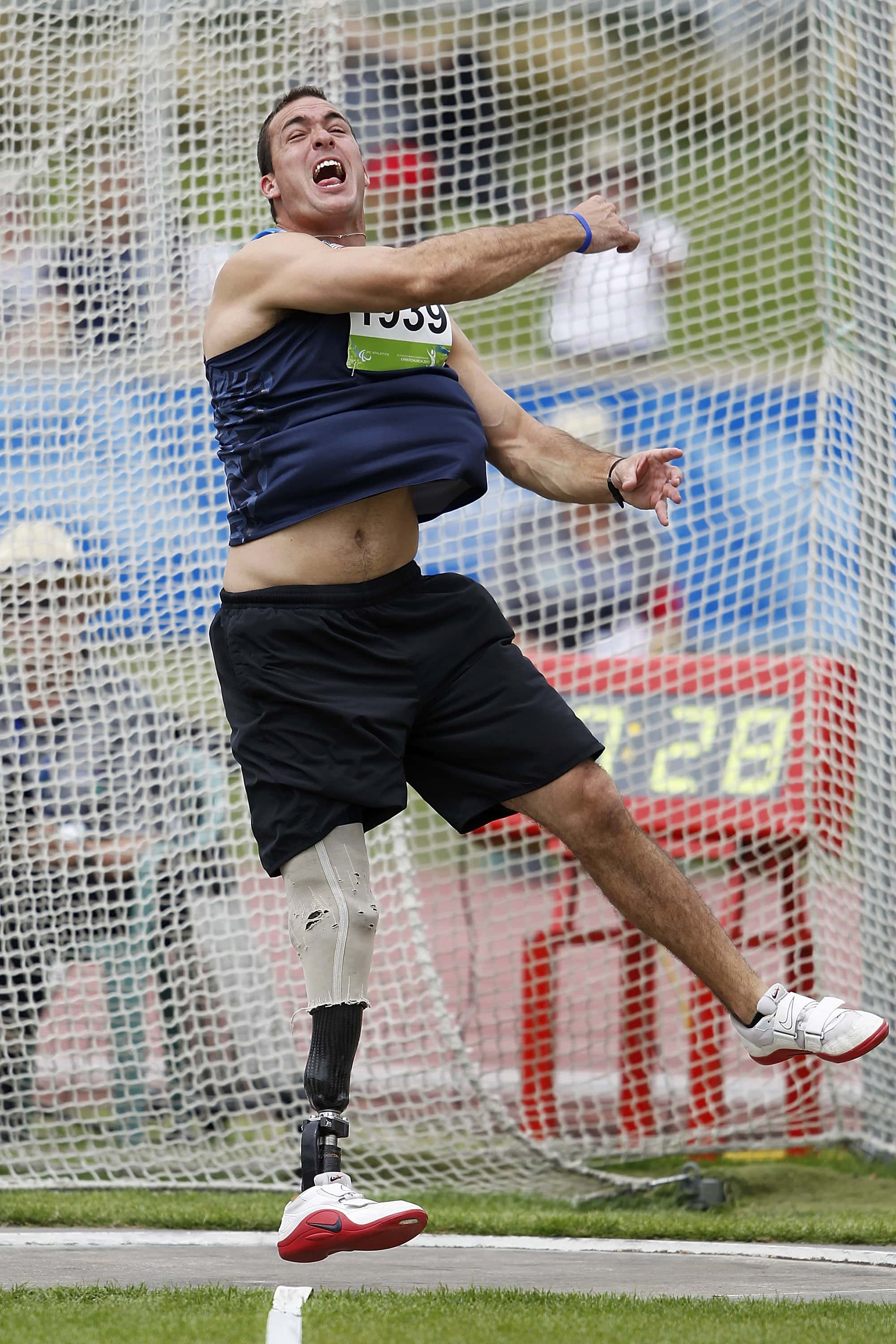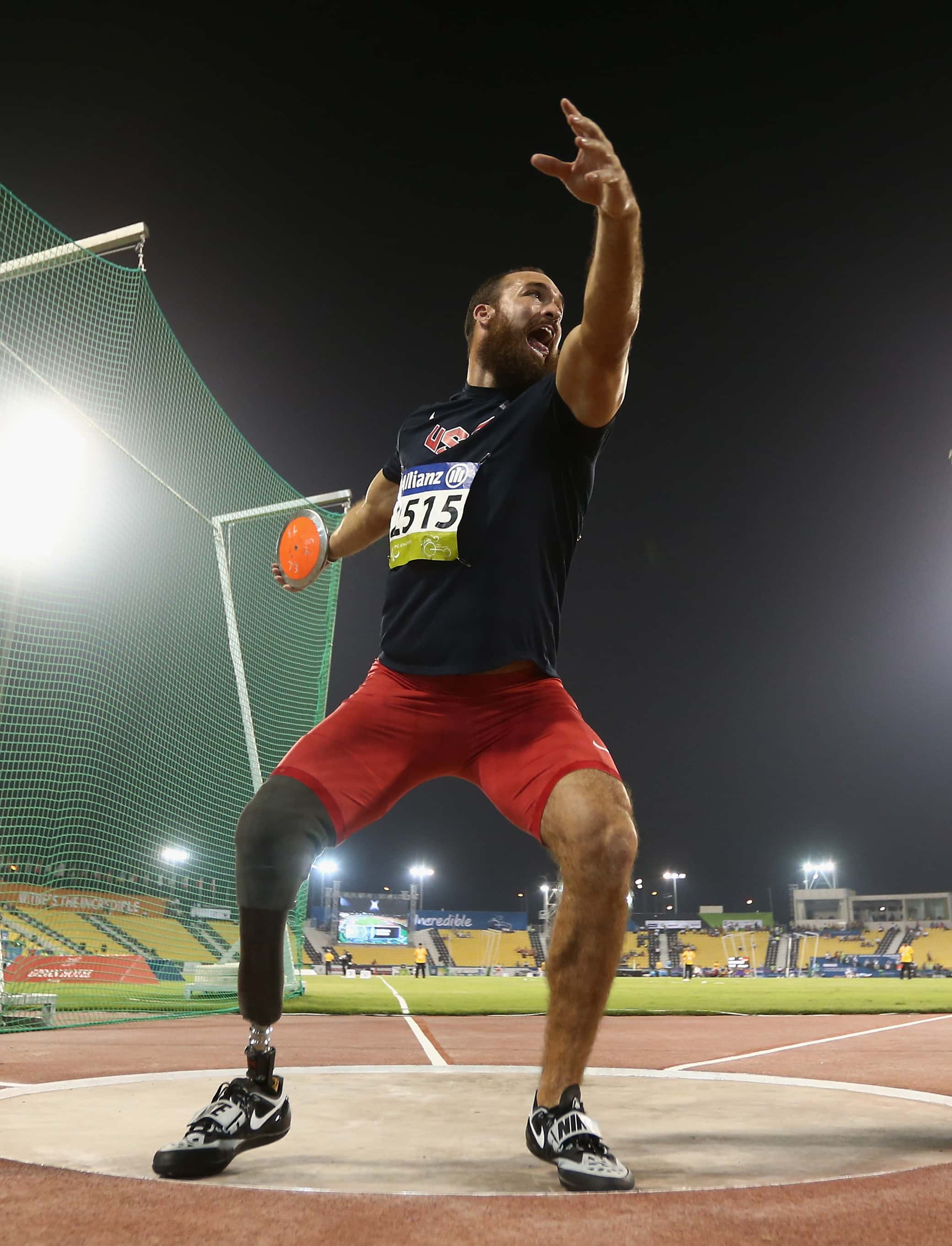Tokyo Paralympics: Jeremy Campbell is confident of taking on able-bodied athletes

The youngest of three very athletic brothers, Jeremy Campbell always had his work cut out since his childhood. There was however one problem - Campbell was born with a rare birth deficiency that made him an amputee even before the future Paralympian would learn to say his alphabets. But that problem was never a huge one for Campbell. Making his personal shortcoming work to his advantage, Campbell soared to the ranks of a world record holder with his performance in the 2008 Beijing Paralympics. How else you may know him? He is the younger brother of Kansas City Chiefs star Caleb Campbell.
Campbell's incredible talent as a shot putter has already bagged him two gold medals in the 2008 Olympics. The same year saw him set a world record in the men's Pentathlon-P44 event. He also won a gold medal in the men's discus throw-F44 event, as well as finished fourth in the men's long jump - F42/44 event. His brother Caleb is also known for his illustrious career in NFL and as an Army alum. But Campbell's accomplishments are also commendable because long before he became a Paralympian, he displayed his confidence and skills while playing basketball and football with peers who had the advantage of both legs over him.
READ MORE
Tokyo Paralympics: How Jonathan Gore turned a tragic accident into sprint glory
Tokyo Paralympics: How Tatyana McFadden went from an abandoned orphan to best wheelchair racer

Campbell, whose hobbies include reading, watching movies, playing video games and golf, like any regular person, enjoys outdoors activities particularly. Born to Stephanie and Gregg Campbell in the year 1987, Campbell had two older brothers, Caleb and Jacob, to look up to as they grew up in Texas. The first crisis that showed up in Campbell's then very short life was the diagnosis of fibular hemimelia - "a congenital longitudinal limb deficiency characterized by complete or partial absence of the fibula bone," according to Rare Diseases Info.
The deficiency is said to cause severe knee instability, with severe cases often causing malformed ankle with limited motion and stability. In some cases, fusion or the absence of two or more toes are also seen. In humans, the deficiency can be diagnosed through ultrasound in utero to prepare for amputation at birth. Complex bone lengthening surgery can also help, but amputation happens usually at the age of six months. In Campbell's case, he was just one year old when his right leg was amputated. Since then he has honed his skills craftily to arrive where he is today.

Campbell's competitors in the Summer Paralympics might be differently-abled people, but that was definitely not the case growing up when he played sports at high school level. In an interview with OpEdge, Campbell had opened up about how people wearing prosthetics have the capacity to compete on the highest levels with people not wearing prosthetics.
Also slamming theories that people with prosthetics have an advantage over people without, Campbell told the outlet: "People are saying that we have advantages over able-bodied athletes because of our prosthetic limbs. It's not that, it's just that some people are using their disadvantage in a particular way. I was competing in able-bodied sports all through high school, and I see no problem with it. I think we should be able to do it."










